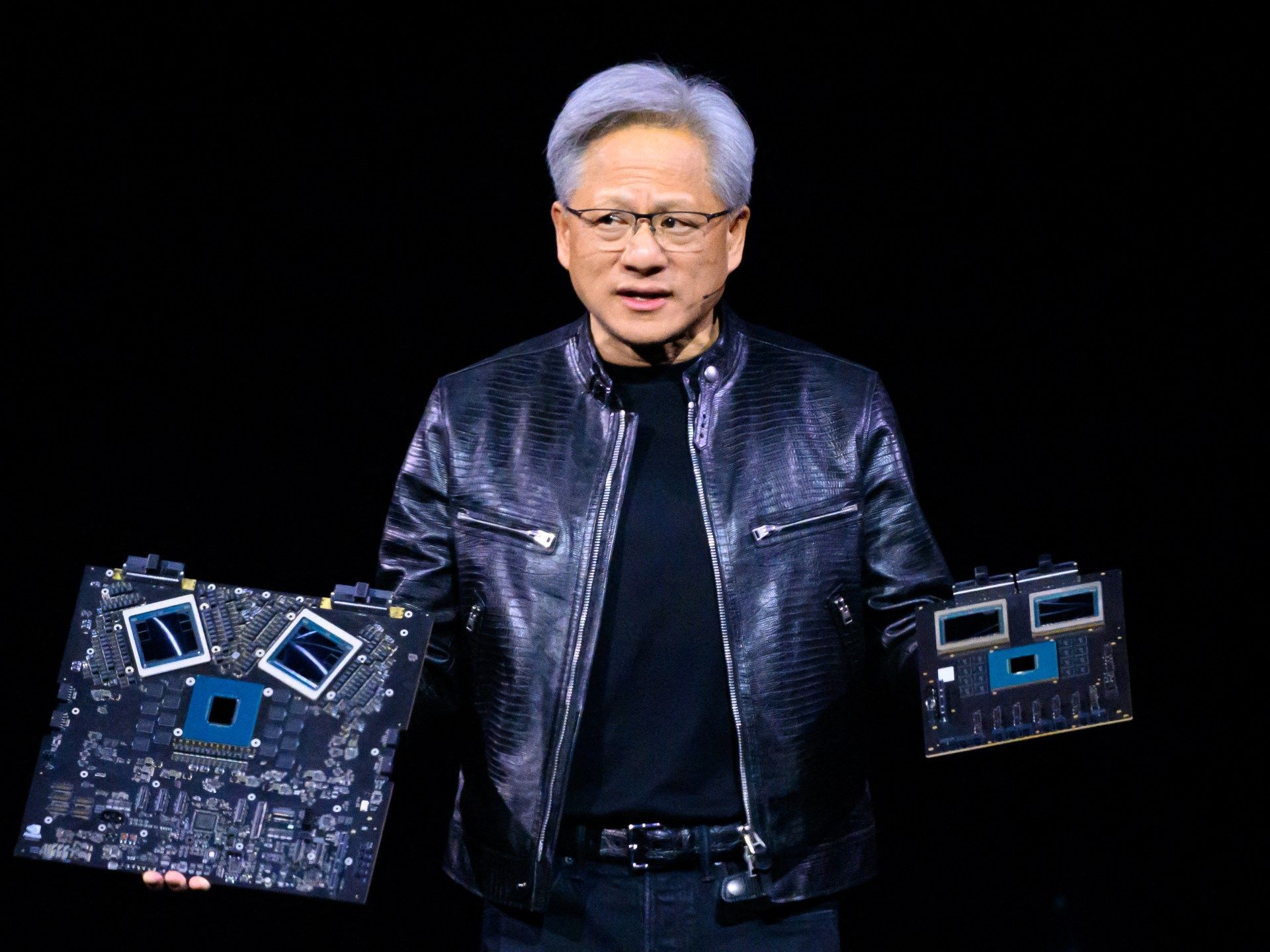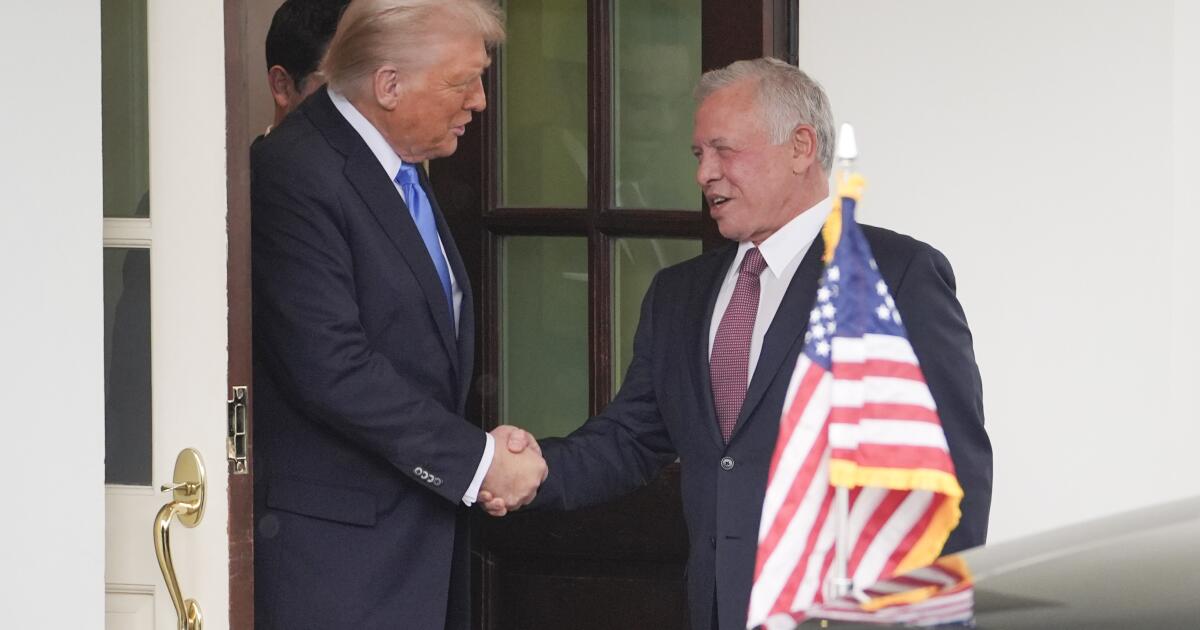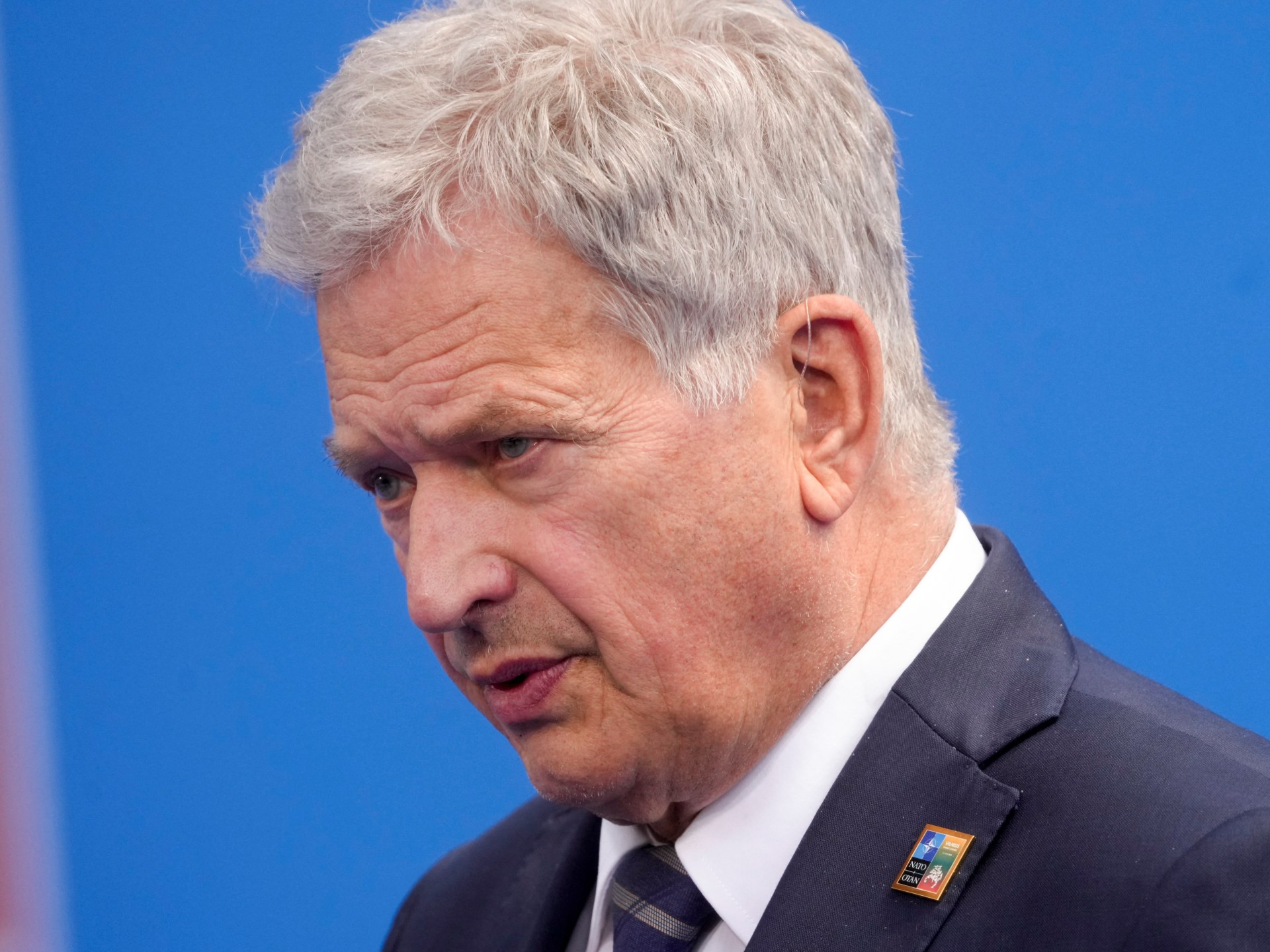Nvidia CEO Jensen Huang tells a developers conference that computing is advancing at an “insane” pace.
Nvidia has unveiled its latest family of chips to power artificial intelligence as it seeks to cement its position as the leading supplier of the AI frenzy.
“We need bigger GPUs. So, ladies and gentlemen, I would like to introduce you to a very, very large GPU,” CEO Jensen Huang said at a developer conference in California on Monday, referring to graphics processors that are vital in creating generative AI.
The event, dubbed “AI Woodstock” by Wedbush analyst Dan Ives, has become a must-see date on the big tech calendar due to Nvidia's unique role in the AI revolution that has swept the world since ChatGPT introduction in late 2022.
“I hope they realize this isn't a concert, it's a developer conference,” Huang joked as he took the stage in a packed arena usually reserved for ice hockey games and concerts.
Nvidia's powerful GPU chips and software are an integral ingredient in creating generative AI, and rivals like AMD or Intel are still struggling to match the power and efficiency of the company's successful H100 product, launched in 2022.
Apple, Microsoft and Amazon have also developed chips with AI in mind, but for now they are stuck trying to get their hands on coveted Nvidia products to fulfill their own AI promises.
That pivotal role in the AI revolution has sent Nvidia's stock price up roughly 250 percent over the past 12 months, propelling the company above Amazon when measured by market capitalization, behind only Microsoft and Apple.
Not budging, Nvidia told the audience of developers and technology executives that it was launching an even more powerful processor and accompanying software, on a platform called Blackwell, named after David Blackwell, the first black academic included in the National Academy of Sciences.
Blackwell GPUs were AI “superchips” four times faster than the previous generation at training AI models, Nvidia said.
“The pace at which computing is advancing is crazy,” Huang said.
They would also offer 25 times more energy efficiency, Nvidia said, a key claim when AI creation is criticized for its voracious energy and natural resource needs compared to more conventional computing.
Unlike rivals Intel, Micron and Texas Instruments, Nvidia, like AMD, does not make its own chips but uses subcontractors, primarily Taiwan Semiconductor Manufacturing Co.
Given geopolitical concerns with Taiwan and China, this could be a potential weak point, and the United States has banned Nvidia from shipping its most powerful chips to Chinese companies.
Nvidia also announced other AI developments, including a platform for training humanoid robots.
Project Gr00t, which Nvidia says is not named after the Guardians of the Galaxy movie character Groot, was described as the “world's first human-based model.”
According to Nvidia, robots powered by Gr00t will be designed to understand what people say and imitate their movements, learning from experience how to interact with the world.
The models “will allow a robot to learn from a handful of human demonstrations so it can help with everyday tasks and emulate human movement just by watching us,” Nvidia said.
Nvidia said it was also working with Apple to incorporate artificial intelligence capabilities into the recently launched Vision Pro spatial computing equipment.
The collaboration comes as Apple is under pressure to prove that Amazon, Google, Meta and OpenAI are not leaving it behind when it comes to artificial intelligence.
Nvidia also introduced the Earth-2 cloud platform to predict climate change, using artificial intelligence supercomputer simulation.












